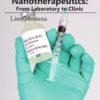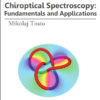Bioreactor is a key device during in vitro animal cell culture. There are several types of bioreactors, including stirred-tank, airlift, hollow-fiber, and Rotary Cell Culture System (RCCS) designs. The stirred-tank bioreactor is one of the most commonly used types, and is used both for industrial applications and laboratory research. The RCCS, invented by NASA, is increasingly used in the area of tissue engineering for medical purposes. Important improvements have been made in the design of traditional bioreactors, and new types of bioreactor are also being developed such as Couette-Taylor bioreactor, multifunctional-membrane bioreactor, and shaking bioreactor. It provides an appropriate growth environment for the cells, enabling them to proliferate and become the final bio-product. Since animal cells are different from microbial cells in morphology, culture skill needed, and mechanical stimulation needed, the traditional microbial bioreactors are not suitable for the large-scale animal cell culture any more, and many new bioreactors are developed.
Bioreactors play a key role in the field of biologics, where they are used for the production of recombinant therapeutic proteins by large-scale cultivation of animal cells. Work is also progressing on techniques to improve the performance of bioreactors, including perfusion culture, the use of microcarriers, and methods of suppressing apoptosis and of monitoring cell growth in real time. Given the demand for the production by animal cells for use in the growing number of clinical applications, further advances in bioreactor technology can be expected during the next few years. Bioreactors: Animal Cell Culture Control for Bioprocess Engineering presents the design, fabrication, and control of a new type of bioreactor meant especially for animal cell line culture. It reviews the bioreactors particularly designed for the animal cell culture, and addresses the mechanical loads on the cultured cells.
Animal cell processes are primarily used for the production of proteins and viral vaccines of relatively high value. Recent advancements in animal cell bioreactor are reviewed. Most previous concerns about the potential difficulties in scaling-up animal cell processes have been alleviated by the developments in bioreactors.













